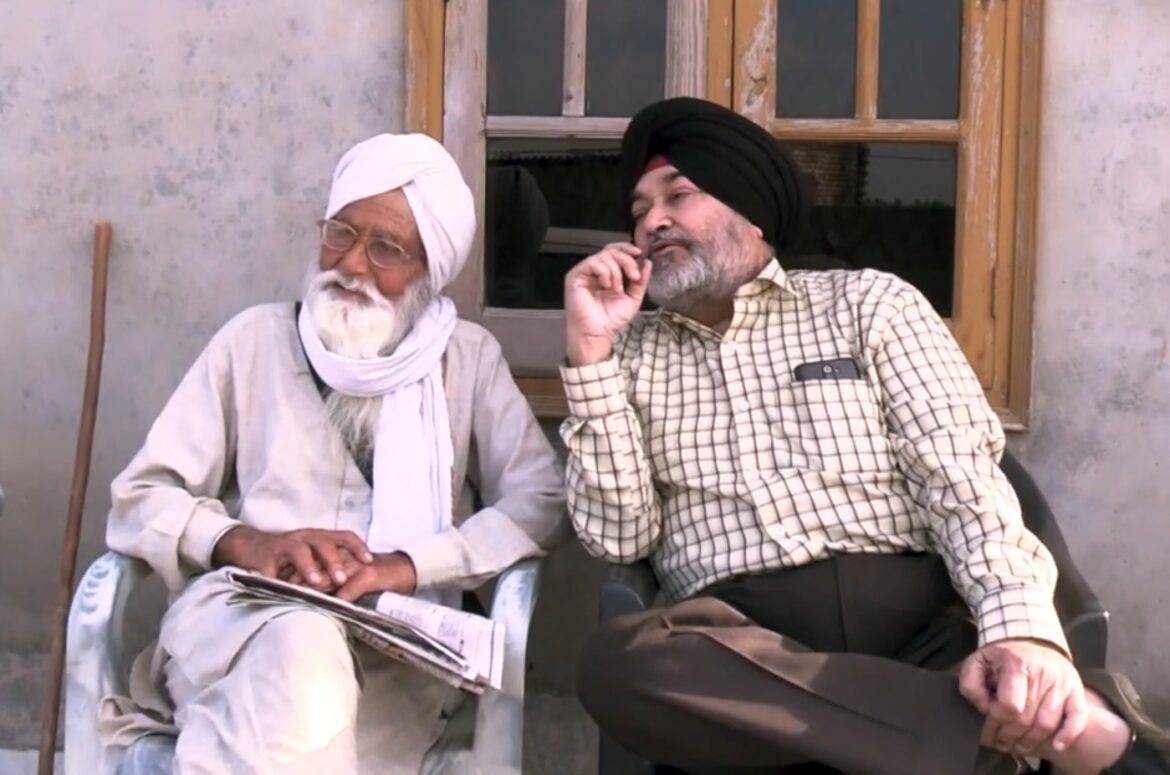AI Generated Summary
- Master Darshan Singh (85), hailing from Sekham village near Lahore, Pakistan, now a resident of Village Wattu in the Muktsar district of Punjab, goes down memory lane when he witnessed the slaughter of thousands of Sikhs and Hindus by Muslim goons during partition in 1947.
- Based on his visit to his ancestral village Sekham in Pakistan, the Wattu resident said that the farmers were poverty stricken, their houses were all ‘kucha’ (Houses made of mud), there was no tubewell in their fields and, hardly a tractor was seen in the village.
- “I went to Pakistan in 1990 as a part of the jatha that visits Sikh shrines in Pakistan every year for Baisakhi day (harvesting day) celebrations and met my ‘chacha’ in our ancestral village,” discloses Darshan Singh.
A Report From India’s Pakistani Village Wattu In Muktsar District Of Punjab
Master Darshan Singh (85), hailing from Sekham village near Lahore, Pakistan, now a resident of Village Wattu in the Muktsar district of Punjab, goes down memory lane when he witnessed the slaughter of thousands of Sikhs and Hindus by Muslim goons during partition in 1947.
“I was part of a ‘jatha’ of over 2 lakh Sikhs and Hindus moving towards Amritsar, but in Jambher village, the Muslims attacked us. The ‘jatha’ was accompanied by three ‘Gorkha’ army men on the orders of the outgoing British. They shot dead 3-looters who raided us, and the others fled,” he recollects.
Darshan Singh says, “As the ‘kafla’ (large group) moved ahead, they came across a canal full of floating dead bodies of Sikhs and Hindus that turned the waters red due to mixing of blood oozing from wounds of injured”.
The retired Sikh school teacher remembers the past with great pain and anguish. The peace and harmony between the communities of different religions were shattered as a religion-based country was created. His paternal uncle (chacha) Hakam Singh refused to leave the ancestral village Sekham near Lahore and converted to Islam. He is now called Hakam Ali. “I went to Pakistan in 1990 as a part of the jatha that visits Sikh shrines in Pakistan every year for Baisakhi day (harvesting day) celebrations and met my ‘chacha’ in our ancestral village,” discloses Darshan Singh.
He also vividly remembers a scene of slaughtered thousands of Sikhs and Hindus travelling to India in a train at Ballawpur village bridge.
When asked, the retired teacher said that the ‘kafla’ covered about 40 km to reach Amritsar in 10 days as they changed many routes to avoid attacks by Muslim looters. Darshan Singh, who was just 8 years old at that time later, moved to village Wattu along with his parents. Before 1947 Wattu was fully occupied by Muslims who left for Pakistan emptying it. With the passage of time, Sikh migrants settled in Wattu, taking possession of vacated houses and agricultural land left by Muslims.
Darshan Singh maintains that the human instinct to survive in all situations is supreme, and religious beliefs and practices come later. It is the reason that seems to be behind his ‘chacha’s’ decision to adopt Islam and change his name to Hakam Ali. But the feelings of brotherhood continue between the two families despite the changed religion of his paternal uncle. “Even our Gurus demolished the divisive walls of religions and propagated universal love,” he added.
Based on his visit to his ancestral village Sekham in Pakistan, the Wattu resident said that the farmers were poverty stricken, their houses were all ‘kucha’ (Houses made of mud), there was no tubewell in their fields and, hardly a tractor was seen in the village. “The Pakistani farmers are desirous of moving to India’s Punjab state. But I told them this is not possible anymore,” Darshan Singh added.
He said that the converted Sikhs continue to shun eating beef as a part of their traditions though Muslims relished it. They also did not consume liquor and instead used opium and its derivatives.




